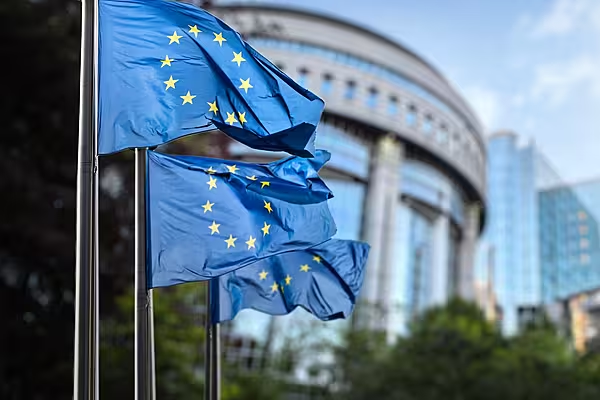Brexit talks ended in stalemate, with both sides deadlocked over the divorce bill and tensions spilling over as the European Union’s negotiator mocked Prime Minister Theresa May.
Michel Barnier said Britain is refusing to acknowledge its financial obligations and wants a deal that’s impossible to achieve. In the coded language of the EU, the “sufficient progress” needed to move on to trade talks hasn’t been made.
The pound weakened to its lowest in a week as the failure of the talks increases the chances of the U.K. tumbling out of the EU without a deal in 2019. The acrimony was clear as Barnier cited May’s oft-repeated and much derided slogans to make the point that the U.K. cannot have it all.
'Brexit Means Brexit'
“Brexit means Brexit, leaving the single market, means leaving the single market and if that’s what’s been decided there will be consequences,” Barnier told a news conference in Brussels alongside Brexit Secretary David Davis.
Negotiations on the future relationship can’t start until EU leaders agree to it, and it’s now looking unlikely they will do that at the next summit in October. That would push it back to December, leaving barely a year to sort a trade deal. The EU won’t discuss transitional arrangements until progress has been made on the divorce issues.
EU officials told reporters that the U.K. position on the bill was that it has no obligations after Brexit and it’s only on the hook for annual payments while a member. The possible costs of a transitional deal weren’t discussed, they said.
Honouring Obligations
The British team refused to set out what it’s prepared to pay for during the talks, and instead used the sessions to pick holes in the EU’s calculations, according to people familiar with the U.K. position.
“This week it is clear that the U.K. does not feel legally obliged to honor these obligations after departure," Barnier said.
Barnier also slammed the U.K. for wanting it both ways, seeking to “take back control” and set its own rules but also have those standards and regulations recognized automatically in the EU. “This is simply impossible,” he said.
Davis had a different view, saying the talks were a “stepping stone” to future rounds. Both sides agreed that talks on the Irish border were “fruitful” in a rare sign of agreement. On the bill, he said obligations “have to be specified, have to be real.” Still, he left the door open for “moral obligations” too.
The third round of talks started with public displays of frustration on both sides and quickly deteriorated. The U.K. accused Barnier of being too rigid and continued to butt against the agreed schedule for talks -- first the divorce and then the future relationship. The U.K. argues that the thorniest issues will be easier to resolve once the future relationship is clearer.
News by Bloomberg, edited by ESM. Click subscribe to sign up to ESM: The European Supermarket Magazine.














